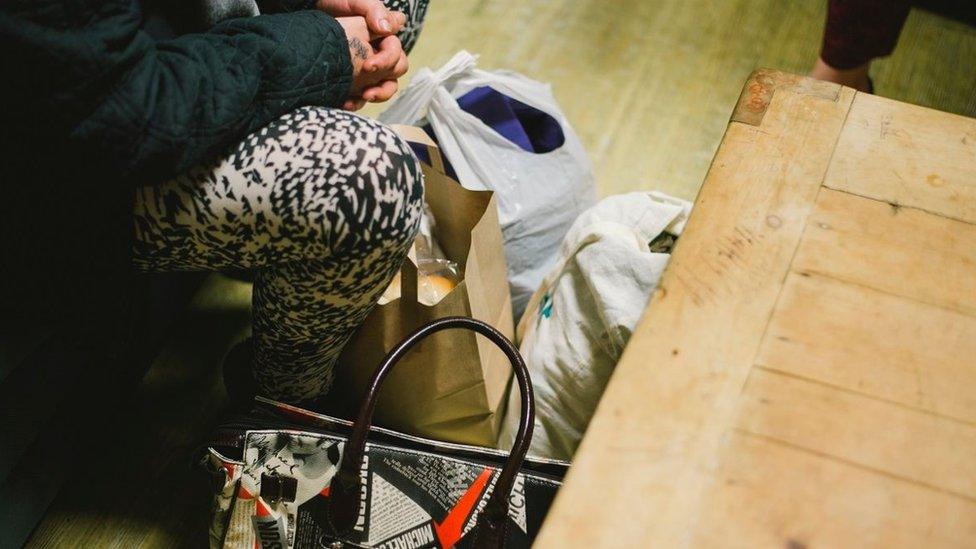More than 800 vulnerable women helped by Bridgwater charity
- Published
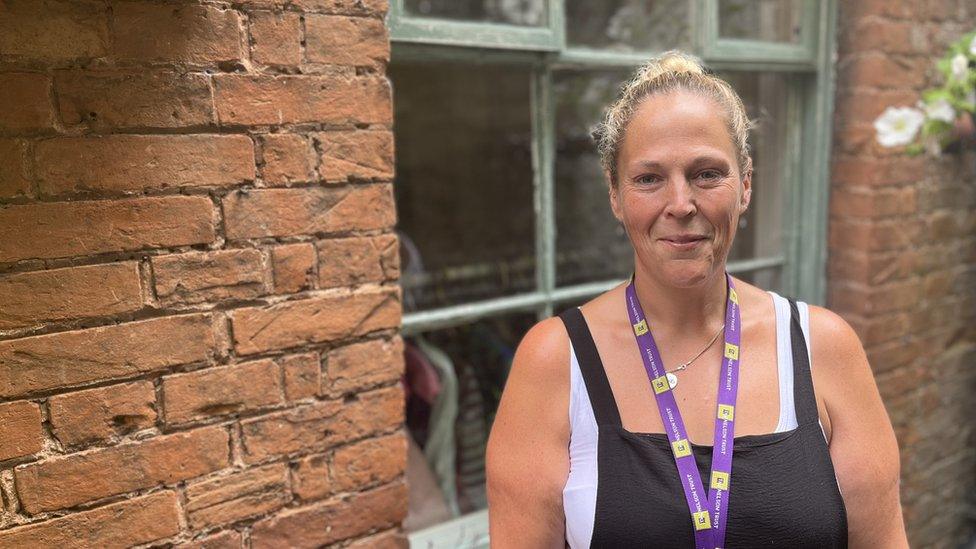
Dani now volunteers for the centre, two years after going into rehab
More than 800 women struggling with addiction and other issues have been helped by a centre since it opened three years ago.
BBC Radio Somerset's political reporter Ruth Bradley was given exclusive access to the Nelson Trust Bridgwater Women's Centre to meet the staff and some of its clients.
"I was the person that you'd never have thought there was any hope for," Dani said.
"My life was a mess. So now when people see me they're like 'Oh my God, I want what she's got'."
The mum-of-five spent seven years addicted to prescription painkillers. Formerly a client at the centre, she is now a volunteer.
"My children wouldn't go to school, I'd lost friendships, people just didn't know what to do with me and I was a totally different person," she said.
'I'd use all day'
"All that mattered was suppressing everything.
"I'd get up, I'd use, I'd take my kids to school, I'd use all day, pick them up. It was just anything to take that pain that I was feeling away."
Two years ago Dani went to stay at the Nelson Trust's, external residential rehabilitation facility in Gloucestershire for three months.
The day after she was discharged, a key worker from the Bridgwater centre knocked on her door.
"[Now] every day I love getting up. I don't need something to take that pain away, because I've been able to deal with that, understand what happened, why it happened, and that I'm not bad," Dani said.
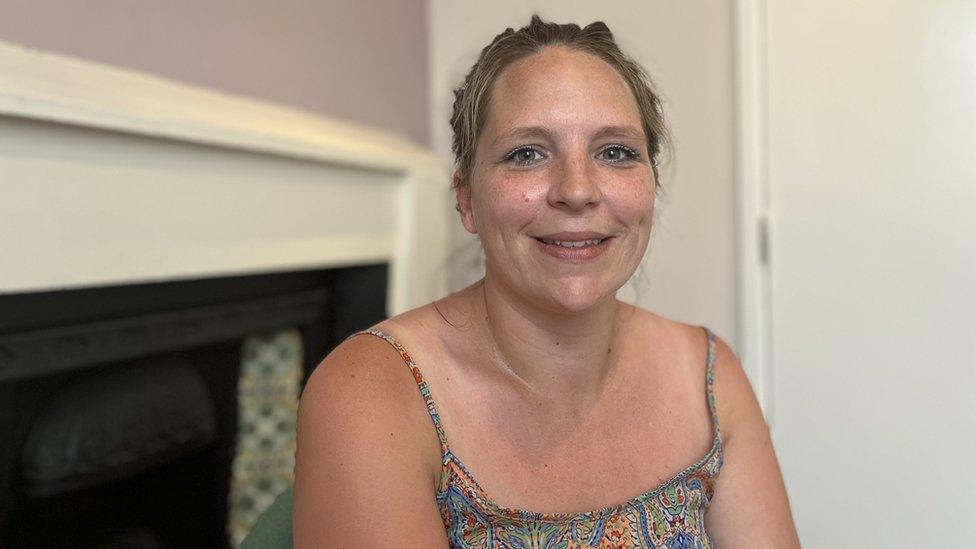
Sherie attends groups and has a key worker at the centre
For 32-year-old Sherie the approach at the women's centre was different than she'd had from other agencies previously.
She said it took a while before she was able to open up to staff about her use of Class A drugs.
"They moved at my pace. They weren't like 'You have to stop tomorrow. You're a bad person'.
"They were like 'OK let's work out why you're using this, let's get to the root cause and we'll try to help'," said Sherie.
'I've got stronger'
She relapsed twice in the last year but has recently passed her driving test and is now considering going to college.
"When I relapsed, they didn't tell me I was terrible, they said 'OK today's a brand new day'."
Sherie said staff will always make sure her children are safe - her youngest is six-months-old.
"They really do take you from thinking you're no-one, and you're worthless and you've got nowhere to go," Sherie said.
"I've just got stronger, my kids have got stronger, I've got more honest with myself."
Sherie said she has learnt an important philosophy from the women's centre staff.
"You are the main character in your story. It's about you.
"So if you're not happy, the people you care about aren't getting the best of you.
"When you actually start believing that, then your life will change."
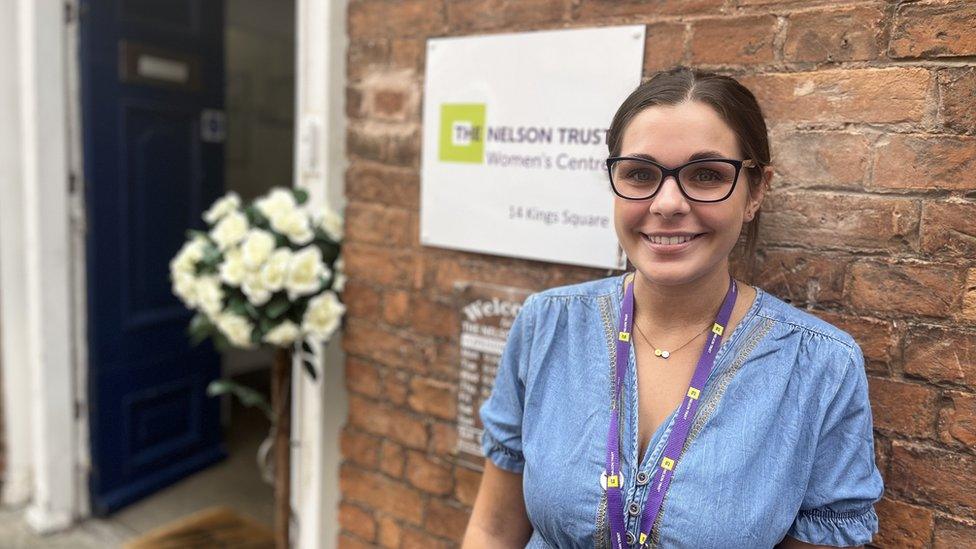
Centre manager Gemman Denman said the pandemic had brought an increase in referrals
Centre manager Gemma Denman said they help a wide range of women, not just those with substance misuse issues.
She said the Covid-19 pandemic brought in a lot of new referrals, particularly with domestic abuse and financial problems.
They have nine pathways on which they can support a woman, including housing, criminal behaviour and sex work.
"There's very rarely just one thing going on for a woman. Sometimes there's four or five, even 10 unmet needs that she's facing.
"And we work with women that sometimes have slipped through the nets in other areas," said Gemma.
For Gemma, and the 25 other staff at the Bridgwater Women's Centre, their passion for their work was evident.
Rachel Mackenzie, exploitation prevention worker, told me: "I love it. I love it so much, and I'm just amazed by the bravery of the women who just keep on going. I love it!"

Follow BBC West on Facebook, external, Twitter, external and Instagram, external. Send your story ideas to: bristol@bbc.co.uk , external
Related topics
- Published1 July 2022
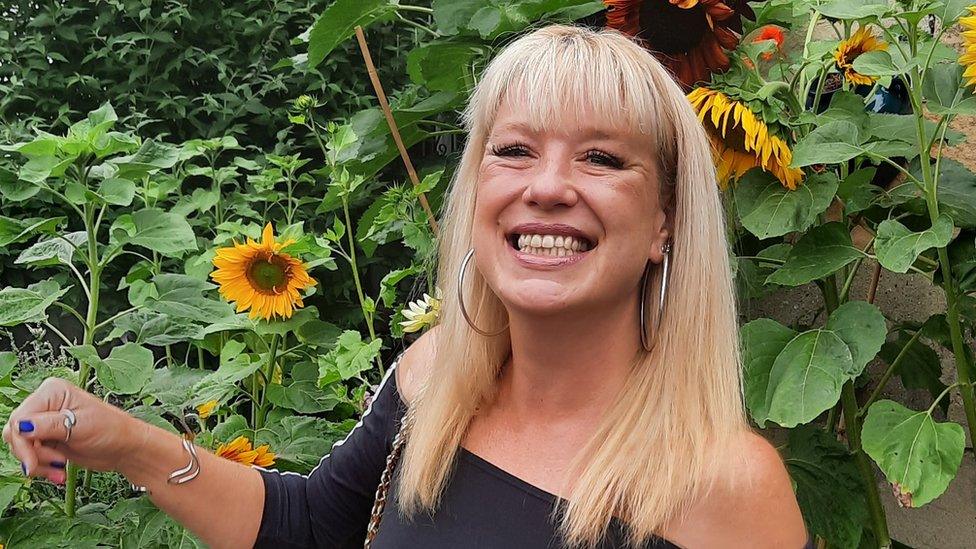
- Published28 March 2022
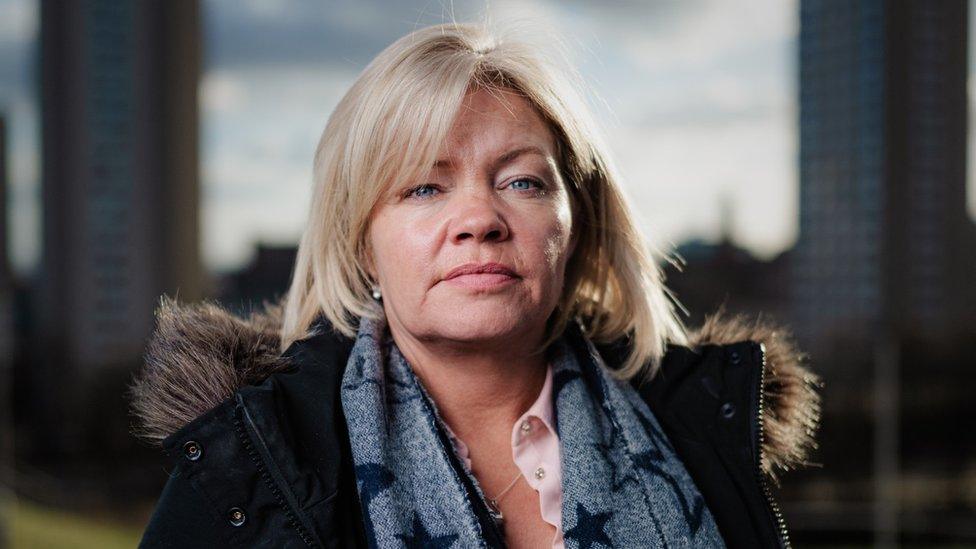
- Published5 March 2019
